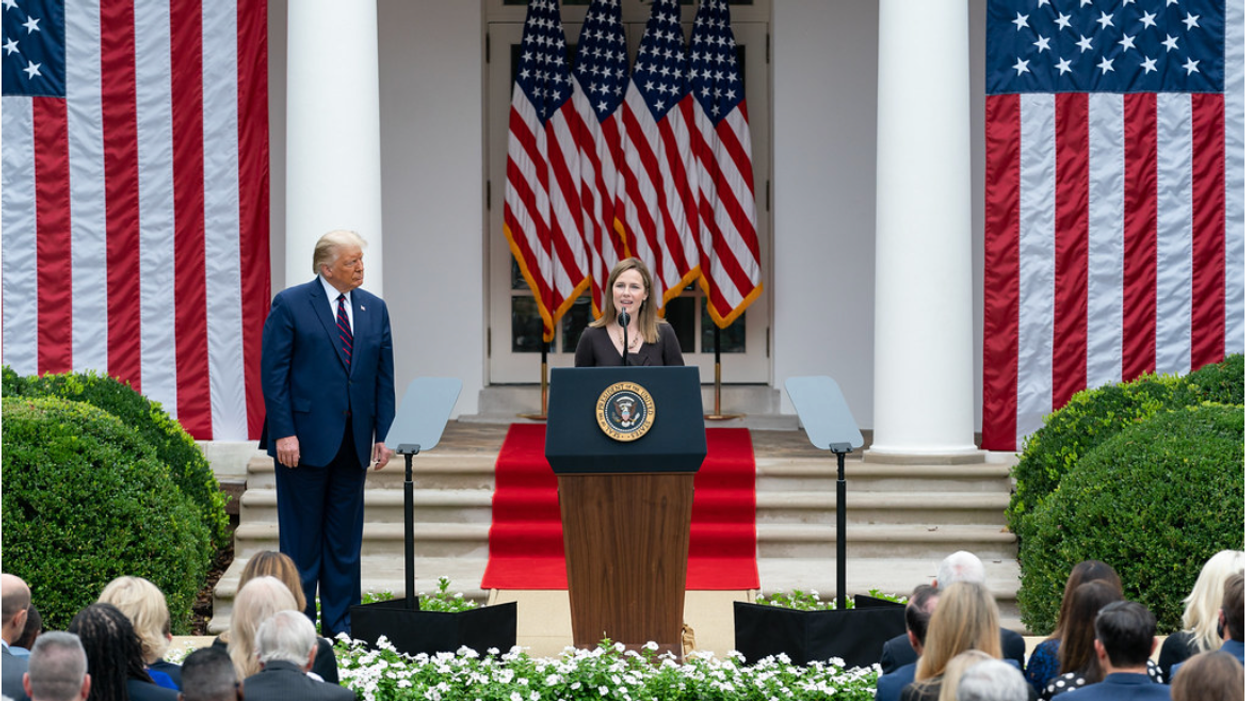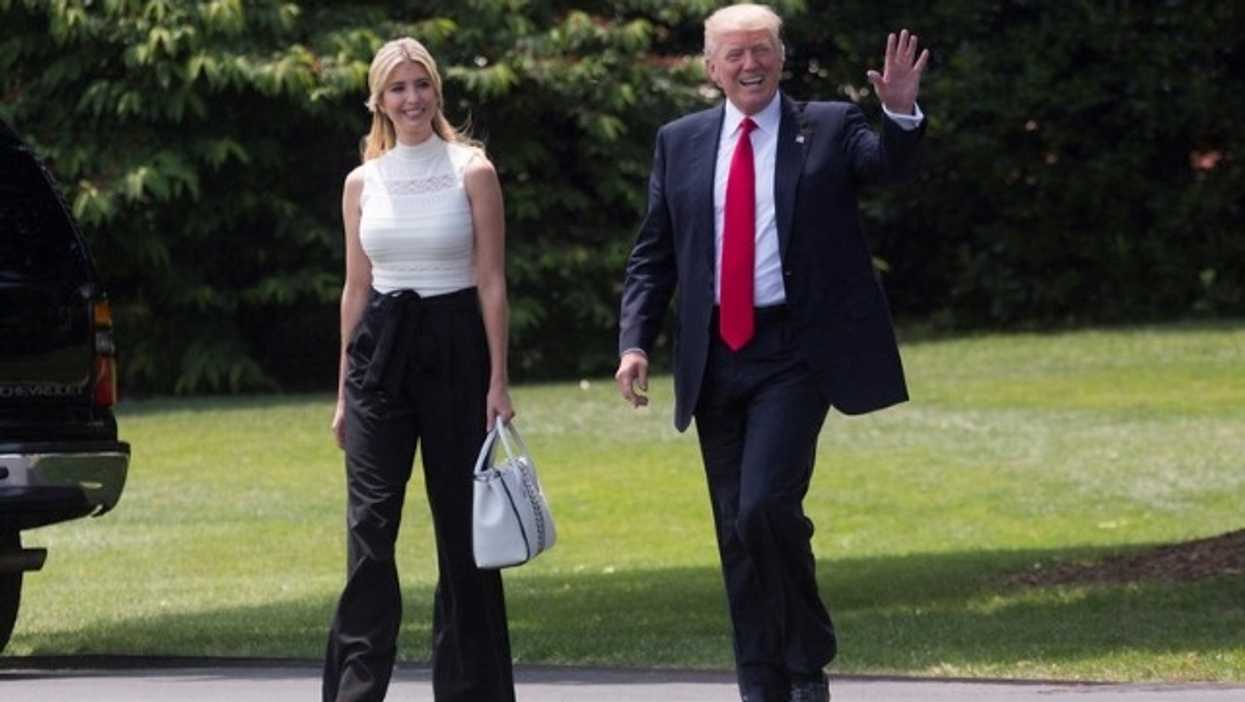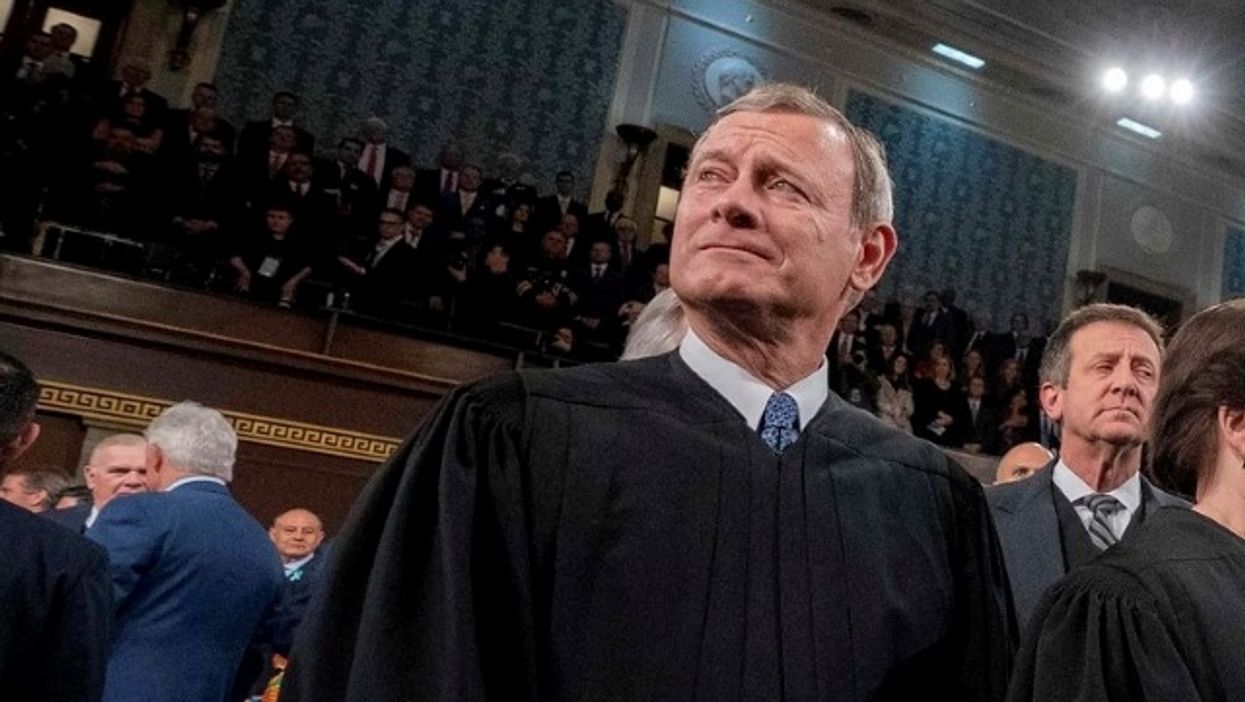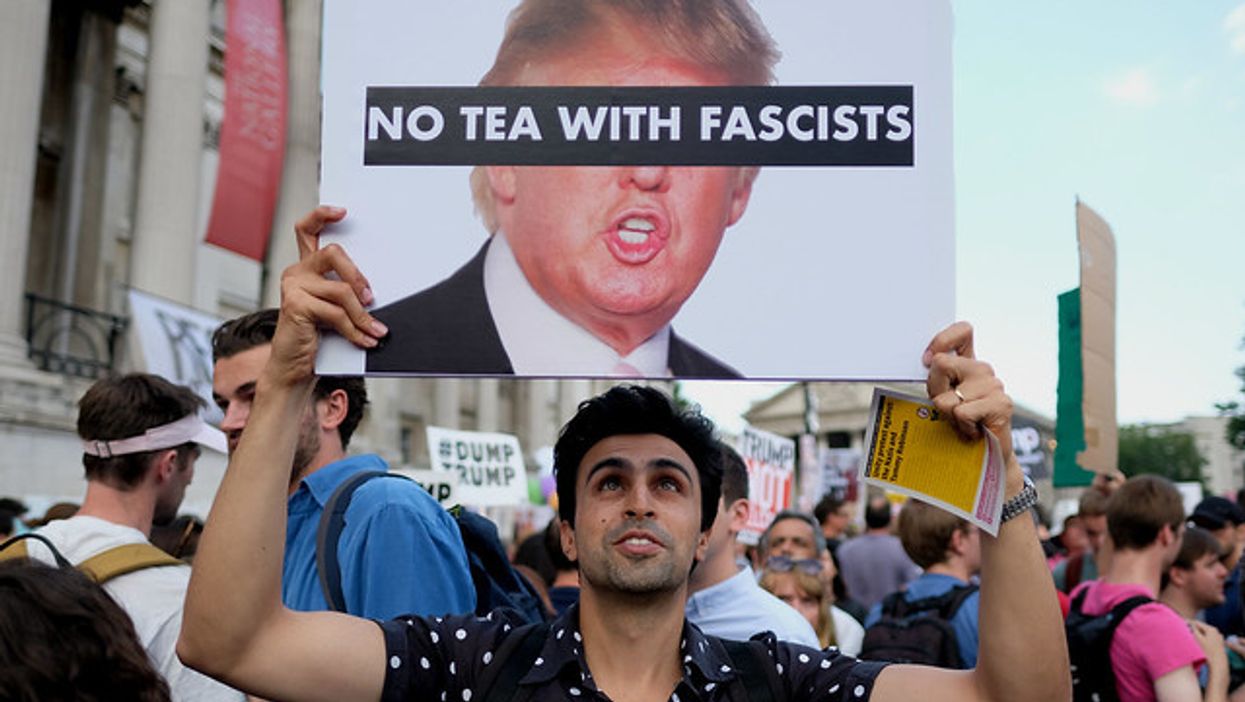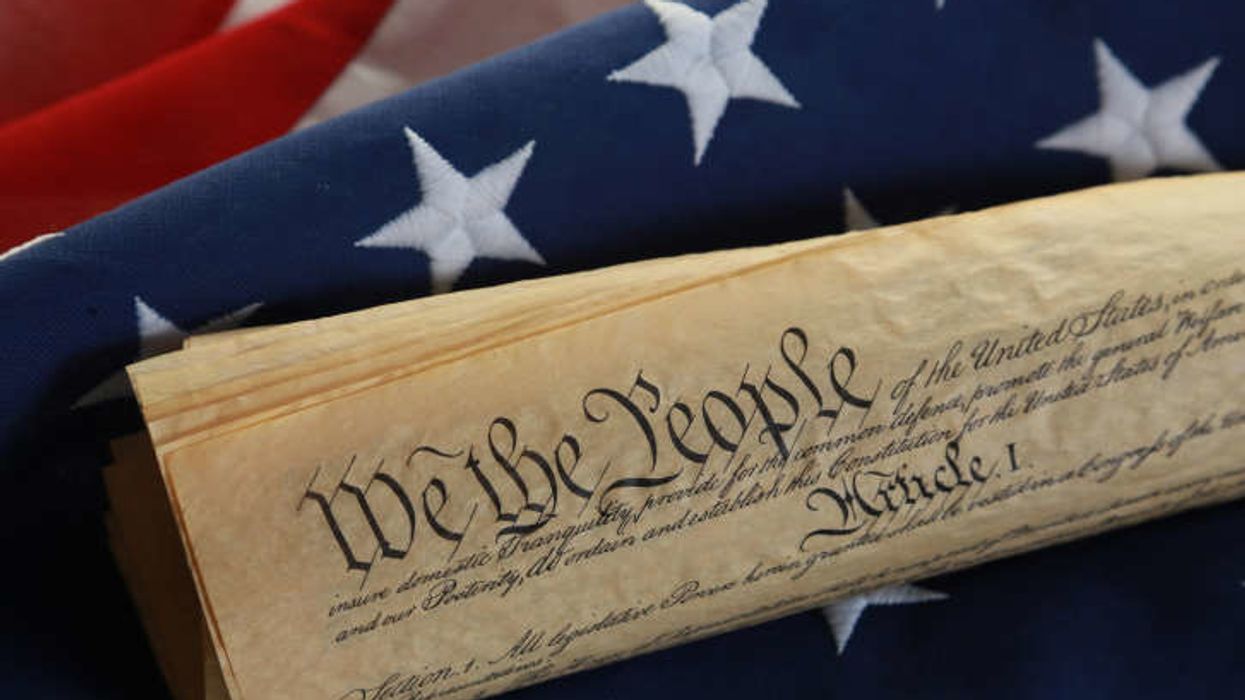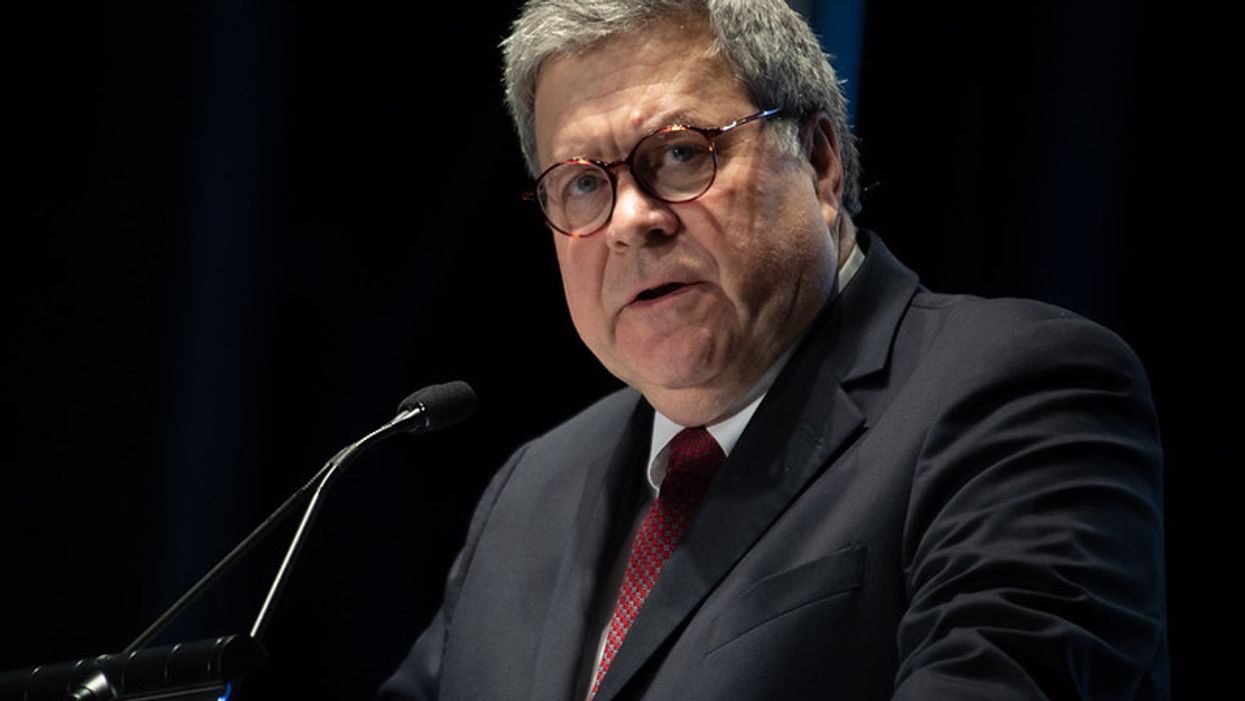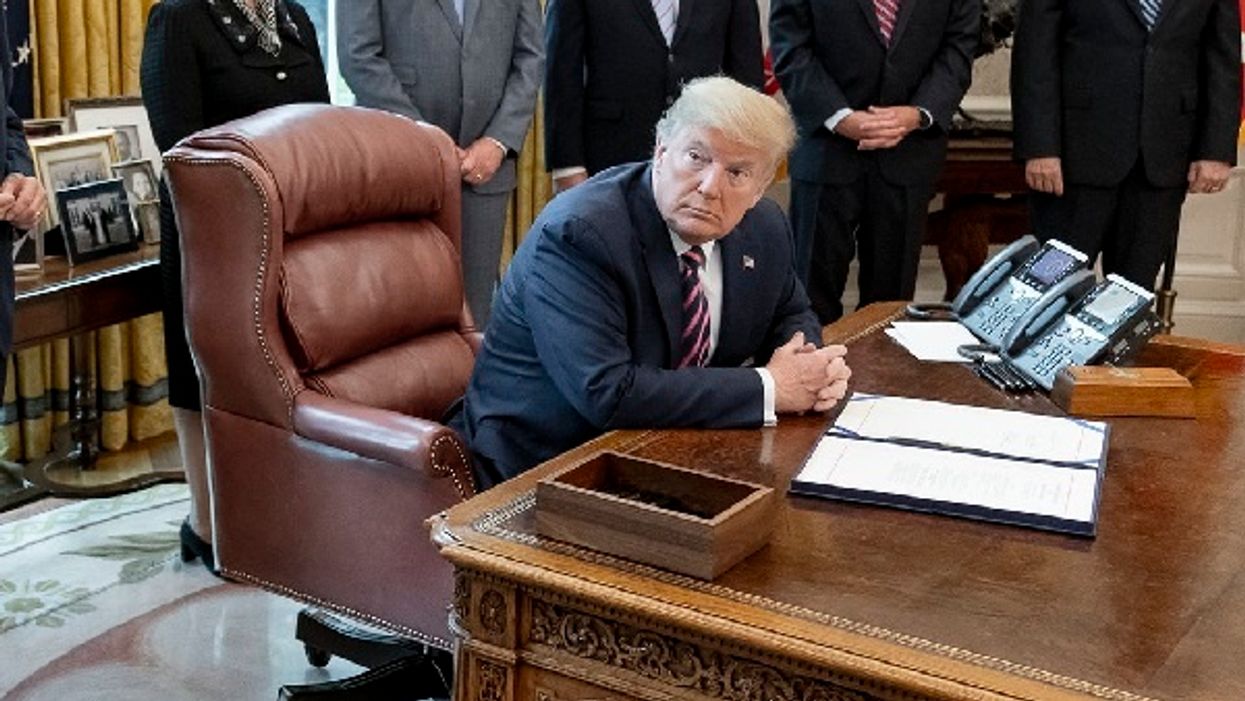Nor is fascism a foreign phenomenon restricted to South American banana republics or failed European states. As University of London professor Sarah Churchwell explained in a June 22 essay published in the New York Review of Books, fascism has deep roots in the United States, spanning the decades from the resurgence of the Ku Klux Klan in the 1920s to the rise of the German-American Bund in the 1930s, the ascendance of Depression-era demagogues like Huey Long, and the election of Donald Trump in 2016.
Churchwell's article is aptly titled, "American Fascism: It Has Happened Here." In it, she offers a working definition of fascism, noting that fascist movements, both past and present in America and abroad, are united by "conspicuous features [that] are recognizably shared." These include:
"[N]ostalgia for a purer, mythic, often rural past; cults of tradition and cultural regeneration; paramilitary groups; the delegitimizing of political opponents and demonization of critics; the universalizing of some groups as authentically national, while dehumanizing all other groups; hostility to intellectualism and attacks on a free press; anti-modernism; fetishized patriarchal masculinity; and a distressed sense of victimhood and collective grievance. Fascist mythologies often incorporate a notion of cleansing, an exclusionary defense against racial or cultural contamination, and related eugenicist preferences for certain 'bloodlines' over others."
Anyone who has studied Trump's campaign rhetoric or watched the brutality of federal law enforcement officers deployed against protesters in Washington, D.C., and Portland, Oregon, can plainly see the features at work.
But what about the legal structures that have permitted Trumpian fascism to take hold in a nation known for its resilient democratic institutions and traditions?
Like other fascists before him, Trump's path to power was made possible not by outright violations of the law, but by fundamental flaws in existing law, embedded in Trump's case in the U.S. Constitution and key federal statutes that were in place long before he descended the escalator at Trump Tower to announce his initial presidential bid.
These are the loopholes and voids in American democracy that were waiting for a would-be strongman like Trump to exploit. Although there are many such loopholes, Trump has benefitted from nine in particular.
1. The Electoral College
The Founding Fathers who drafted the Constitution were visionaries and revolutionaries. But they were also wealthy white men of property, elitists, and in many instances, slaveholders, who deeply feared the potential "tyranny" of majority rule.
Instead of designing a system of direct democracy that would allow the people to choose their president by a national popular vote, the founders established the Electoral College, which allocates to each state a number of electors equal to its combined (Senate and House) congressional delegation. (The District of Columbia was accorded three elector votes by the 23rd Amendment, ratified in 1961.) When Americans go to the polls, they don't actually elect the president. They vote instead for a slate of state electors, who cast the real votes.
Alexander Hamilton argued in the Federalist Paper No. 68 that entrusting the selection of the president to electors rather than the people would ensure that presidents were chosen by "men most… likely to possess the information and discernment requisite to such complicated investigations," and guarantee "that the office of President will never fall to the lot of any man who is not in an eminent degree endowed with the requisite qualifications."
History has proven Hamilton and the founders wrong. On no fewer than five occasions, we have installed presidents who won the Electoral College, but lost the popular vote: John Quincy Adams in 1824; Rutherford B. Hayes in 1876; Benjamin Harrison in 1888; George W. Bush in 2000; and Donald Trump in 2016.
Trump lost the 2016 popular vote by a greater margin (roughly 2.8 million votes) than any president in U.S. history. His fascism represents a tyranny of the minority unanticipated by the founders, but made possible by the system they devised.
2. The Constitutional Design of the Senate
Under the Constitution, all states are allocated two senators, regardless of population. In 2016, Senate Democrats won far more votes nationally than their Republican counterparts. Nonetheless, the GOP emerged with a solid majority in the upper chamber.
Since his inauguration, Trump has used the Republican-controlled Senate to further minority rule, ramming through two conservative appointments to the Supreme Court and many more appointments to the lower federal bench. Trump also benefited from the GOP's hold on the Senate in his impeachment trial, securing a quick and easy acquittal. Seeking to protect the president at all times, Senate Republicans blocked any witnesses from being called.
3. Abuse of Executive Orders
Although the Constitution vests Congress with the power to pass legislation, presidents can issue executive orders pursuant to grants of congressional authority, or under their inherent powers. Every American president has issued at least one, dating back to George Washington's 1794 proclamation aimed at suppressing the Whiskey Rebellion. Unless overturned by the courts, executive orders have the force of law.
Ultimately, it's not the quantity of executive orders that matters, but the quality. If executive orders run afoul of Congress' law-making powers to a great enough degree, they are a conduit to autocracy.
Among Trump's most odious mandates are his Muslim travel ban of 2017; his 2018 order establishing a task force to evaluate the "operations and finances" of the beleaguered Post Service; his 2019 order imposing additional sanctions on Iran in the aftermath of his decision to withdraw from the Iran nuclear agreement; and the order issued this past May, purportedly for "preventing online censorship." Critics charge the censorship order has nothing to do with free speech, but was motivated by Trump's desire to exact revenge against Twitter for removing some of his more unhinged, conspiracy-driven posts.
On August 8, Trump announced additional orders designed to break the congressional stalemate over a new stimulus package to combat the economic devastation wrought by COVID-19. The new edicts may look benign at first glance, but they include a directive slashing the $600 per week in enhanced unemployment benefits approved by Congress in March to $400, with cash-strapped states being held responsible for doling out one-quarter of the amount. Another order calls for deferring the Social Security payroll tax, a step that could severely undermine the delicate balance sheet of the Social Security Administration in the middle of a pandemic.
4. The National Emergencies Act
Passed in 1976 as a post-Watergate reform to rein in presidential power, the National Emergencies Act has in practice been a failure, in large part because it doesn't define what constitutes a national emergency. The act accords the president complete discretion to issue an emergency declaration, as long as the president specifies at least one emergency power contained in an existing federal statute that will be used to address the declared emergency.
In February 2019, Trump invoked the NEA to redirect $2.5 billion in federal funds for construction of his shameful wall along the border with Mexico, citing an obscure section of the United States Code dealing with deployment of the Army's "Ready Reserve" units. In July 2019, the Supreme Court, in a 5-4 ruling decided along ideological lines, overturned a lower-court decision that had blocked the funding transfer. In October 2019, Trump vetoed a bipartisan bill that Congress had passed to repeal the emergency decree.
What emergency will Trump declare next? How about a crackdown on the "fake news" media? A 1934 law still on the books allows the president to shut down or take control of "any facility or station for wire communication" (arguably, the internet in the digital era) upon his proclamation "that there exists a state or threat of war… or other national emergency."
5. The Scapegoating of Immigrants
The most heartless and dangerous policies adopted thus far by the Trump administration arguably lie in the area of immigration. Nothing says fascism more than dispatching federalized National Guard troops to the border, as Trump did in 2018, or incarcerating undocumented immigrant children in makeshift detention camps, or withholding federal funds from so-called sanctuary states and cities.
Trump's policies may be especially oppressive, but they haven't sprung from thin air. In the larger historical context, they fall well within the boundaries of America's deep-seated nativist traditions. From the Alien and Sedition Acts of 1798 to the Chinese Exclusion Act of 1882, the "red scares" of the 20th century, the "Operation Wetback" mass roundups of the Eisenhower administration, the expedited deportation hearings instituted by Bill Clinton and the deportation records set by Barack Obama, our immigration laws and policies have been driven by political expediency, paranoia, scapegoating, racism and economic exploitation. Trump has simply taken advantage of them to consolidate and appease his electoral base.
6. The Transformation of the Department of Homeland Security Into a Mobile Paramilitary Force
Since its creation in 2002, the Department of Homeland Security has grown to become the third-largest federal agency, with more than 240,000 employees. More than 60,000 DHS employees work as law-enforcement officers assigned to the Border Patrol, the Federal Protective Service and other units.
The DHS operates at the direction of the president. In July, DHS forces were dispatched to Portland, where they bombarded protesters with tear gas and pepper spray, savagely beat protesters, and abducted some in unmarked rented vans. Rather than reprimand the agency for its excesses, Trump has promised to use similar tactics in other cities. He has also threatened to invoke the 1807 Insurrection Act to send the U.S. military to quell protests elsewhere.
7. Abuse of the Pardon Power
The Constitution gives the president broad authority to grant "reprieves and pardons" for federal crimes. Presidents since George Washington have exercised the power, sometimes controversially.
No president has used the power to reward political cronies, misfits and crooks more than Trump. In 2017, Trump pardoned Joe Arpaio, the notorious Arizona sheriff, after he had been convicted in federal court of criminal contempt. In 2018, he pardoned the far-right pundit Dinesh D'Souza, who had pleaded guilty in 2014 to making an illegal campaign contribution. In 2019, he pardoned three U.S. military officers accused of committing war crimes in Afghanistan and Iraq. And earlier this year, he commuted the prison sentence of his longtime adviser and associate Roger Stone.
In the manner of a dedicated fascist, Trump has even claimed the "absolute right" to pardon himself if the need ever arose.
8. Eroding Justice Department Independence
No fascist takeover can be complete without the steadfast loyalty of government prosecutors to the nation's supreme leader. Until the arrival of Trump, every president since Nixon had respected the operational independence of the Department of Justice. The DOJ's independence, however, is not enshrined in the Constitution or protected by federal statutory law. It is a norm that the president, as head of the executive branch, can breach at will.
Trump has worked hard to break the DOJ. When he fired Jeff Sessions, his first attorney general, in November 2018, he replaced him with Bill Barr, a hardline proponent of the "unitary executive," a theory of governance that espouses a wide-ranging expansion of presidential power. Since then, as Intercept columnist James Risen has charged, Barr has "turned the Justice Department into a law firm with one client: Donald Trump."
9. Voter Suppression
In the run-up to the 2020 election, Trump's new appointee as postmaster general, a former donor named Louis DeJoy, is shutting down local post offices and reducing overtime pay for postal workers under the guise of cost-cutting to sabotage the agency that will be charged with delivering a critical mass of mail-in ballots in the fall. Combined with other suppression techniques that are already in place—strict voter ID laws, voting roll purges, the closing of polling stations, etc.—a grand plan is taking shape to cast doubt on the vote tallies in crucial swing states.
As the plan unfolds and the election's legitimacy is called into question, Trump and his allies can be expected to summon the Supreme Court to ride to their rescue in a replay of Bush v. Gore, the infamous judicial coup d'état that handed the 2000 presidential election to the GOP. Alternatively, Trump could try to push the election to the House of Representatives, where the outcome would be determined according to the arcane procedures of the 12th Amendment.
Whether Trump can pull off such a scheme remains to be seen. One thing, however, is certain: If Trump wins another term, the fascism we're seeing in America today will pale in comparison to the fascism we'll see tomorrow.
Bill Blum is a retired judge and a lawyer in Los Angeles. He is a lecturer at the University of Southern California Annenberg School for Communication. He writes regularly on law and politics and is the author of three widely acclaimed legal thrillers: Prejudicial Error, The Last Appeal, and The Face of Justice.



